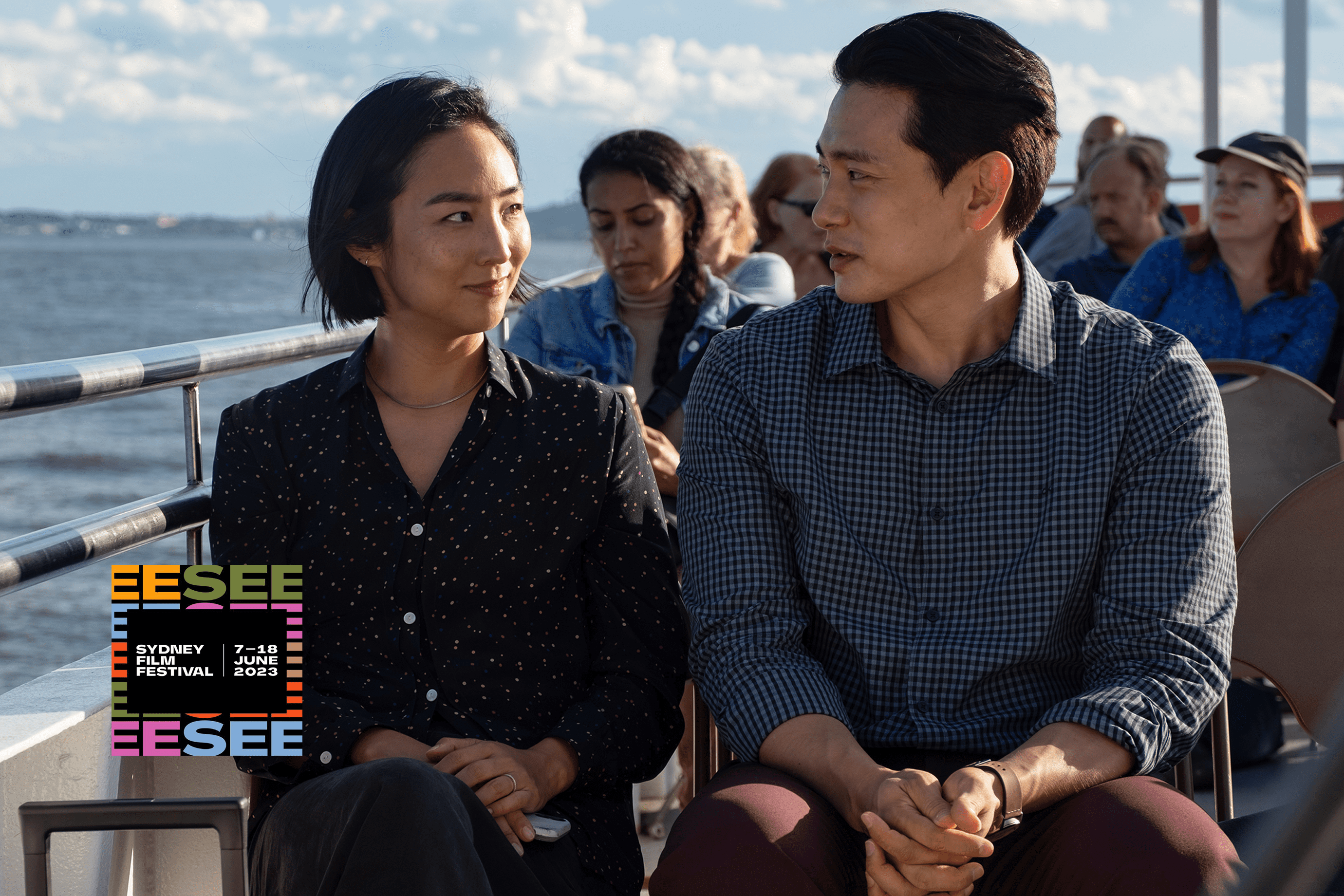On a biting Friday evening, an unyielding line sprawls across the stretches of George Street; emerging from the grandiose State Theatre and meandering its way towards the humble glow of Downtown Souvenirs & Gifts’ storefront for the much awaited premiere of Past Lives (2023). A whisper of fervour and exhilaration buzzes through the labyrinth of film lovers and cinema-goers; an atmosphere that can only be characteristic of the city’s annual Sydney Film Festival.
For its hype, Past Lives tells a deceptively simple story. Nora, a New York playwright whose family emigrated from Korea in her youth, reunites with her childhood sweetheart, Hae Sung, decades later. What unfolds is a captivating exploration of residual regrets, aching realities, and lingering “what if’s”. Though it presents itself as a familiar tale told as old as time of love’s lost connections – themes comparable to Richard Linklater’s Before trilogy (1995-2013) and Wong Kar-Wai’s In The Mood For Love (2000) – Celine Song’s Past Lives is anything but. As Anthony Lane for The New Yorker suggests, Past Lives is more about the grappling of life’s transience than it is a mere love story.
Specifically, Past Lives presents a negotiation between past and present selves and serves as a reckoning of the forged identities distinctly embedded within the immigrant experience. When Nora finally meets Hae Sung, she not only encounters a childhood friend but comes face to face with a forgotten identity that lives only within the bounds of her home country. When Hae Sung asks if her childhood desire to win the Nobel Prize for Literature remains, Nora struggles to even remember such a hazy dream. Admittedly, Nora confesses that not even her mother calls her by her Korean name anymore; leaving a remark that makes her feel “so not Korean”. Song depicts the immigrant experience further; a young Nora and her sister are seen strategically picking out their new Westernised names as if shopping for a new outfit, and one memorable scene captures Nora and Hae Sung on their walk home from school – Nora ascends the stairs while Hae Sung continues forward, symbolically mapping the diverging directions of their lives. An older Nora and Hae Sung are later situated against a vibrant merry-go-round, their adult lives placed in stark juxtaposition to their childhoods.
Indeed, Song’s directorial debut rings incredibly true to her own life. A playwright herself with a family who similarly emigrated from Korea, Song brings an irreplaceable authenticity to the story she tells. Greta Lee’s (Nora) expressions convey the emotions of a million memories through her eyes, and Teo Yoo (Hae Sung) playfully embodies the kind of childhood giddiness and innocence that still resides in you as an adult. The purposeful pauses, wistful gazes, and longing gasps of disbelief between these two characters somehow communicate more than what could ever be spoken aloud. John Magaro (Arthur), despite his at times redundant character, delivers a critical yet humorous performance, bringing comedic flair into an otherwise pensive plot.
Not only does this film masterfully excel in its subject matter, Past Lives is also a beautiful craft of cinema on its own. Sweeping shots of New York occupy the screen, weaved with mirrors and windows symbolic of its introspective and reflective themes. Characters are frequently captured strolling through the metropolis, their constant state of movement evocative of the inevitable transience of life. The soundtrack alone is both playful, yet poignant enough to thrust you into the arms of your childhood; and the film’s subdued colour palette – painted with hues of warm oranges and soft blues – is reminiscent of our own faded memories.
It’s been a ride for Asian representation on Hollywood screens these past couple of years – particularly for the film’s distribution company, A24. Everything Everywhere All At Once (2022) took the world by storm with its audacious storytelling. The Netflix series Beef (2023) garnered critical acclaim for its subversive narrative, while The Farewell (2019) was similarly celebrated for its authentic plot. Past Lives is posited securely within this reappraisal, though none have touched me in quite the same way that this film has. As the film’s end credits rolled in, what once was a bustling cinema was now filled with a speechless silence and stifled sniffles. At its run time of 106 minutes, Song’s debut takes you through the journey of what truly feels like decades of lived experience. Past Lives is a film you should not miss in 2023, and one that you should make sure to bring tissues with.





